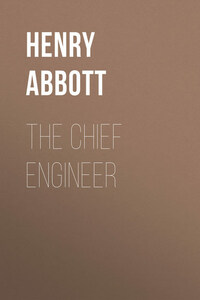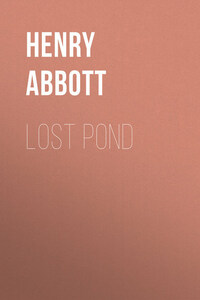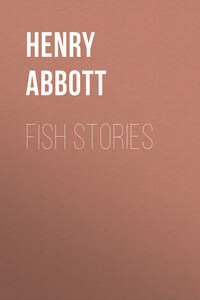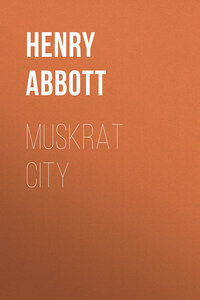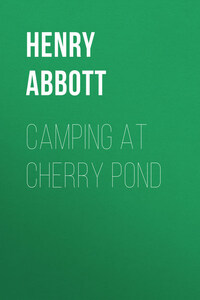It was a dark night in July – very dark. There was no moon and clouds hid the stars. We were sitting by the camp fire. Bige had just kicked the burning logs together so that a shower of sparks shot straight up toward the tree-tops, indicating that there was no wind, when he said, "If you want to make that picture of deer this is just the kind of a night to go for it. You must have it dark so you can get close enough to get a good photograph. Also, this is just the kind of weather when we are likely to find deer feeding near the mouth of the river."
So with camera and flash-light apparatus I climbed into the bow end of our light-weight cedar boat, while Bige with paddle sat in the stern. We aimed toward the mouth of the river about half of a mile from camp and across the pond. No land-marks were visible, so we steered by "dead reckoning." Bige was feathering his paddle, Indian fashion without lifting it out of the water, so we silently proceeded, making no ripple on the surface and yet, at first, rather swiftly.
A few minutes later, the bow of the boat struck some yielding obstacle. My first thought was that we had hit a mossy, overhanging bank on the opposite shore of the pond. In times of stress, thoughts follow each other in rapid succession. My second thought was that the opposite shore was not mossy and overhanging, but rocky; third, that we had not been out long enough to get across; and fourth that we must have hit some animal who was swimming. But things were happening now, more rapidly than thoughts, and very much quicker than the time required to tell about them; and this latter thought was confirmed long before it was completely formulated.
Instantly, after we struck, a violent commotion occurred under the bow of the boat, water splashed in my face, there was the sound of scratching, gnawing and splintering wood, then a paw appeared on the gunwale beside me, the boat rocked and I yelled to Bige, "He is climbing aboard!!" while I lifted the camera intending to brain this indistinct shape as soon as I could see its head. This was immediately followed by the release of the weight on the side of the boat, its rocking in the opposite direction, a resounding slap on the water which threw a shower of spray over my head, in my eyes and ears. Then silence.
"Must have hit a muskrat," said Bige.
"More like a collie dog or a young bear," said I. "He surely would have swamped the boat if you had not slapped the water with the paddle, and I would have smashed my camera over his head."
"I didn't slap anything with the paddle. I wouldn't spoil your fun that way. Your friend in the water made all the noise. Wonder what he was," said Bige.
"Well, it was no measly muskrat, I'll stake my reputation and experience on that," said I.
There ended our photographing operations for that occasion, since after such a racket no deer could be expected to show himself at the pond, so we turned back to camp. On the way we discussed the possible identity of the animal with whom we had just been in collision, and who had upset our plans for the evening.
Most wild animals swim; some for pleasure, others only when it cannot be avoided. In the darkness we failed to get a clear idea of the size or shape of this fellow, we could only judge by the jolt our boat got, and the commotion he made in the water. We canvassed the possibility of its being a coon, a fox, an otter, a porcupine, a marten, a lynx or a wolf; but there was something about the habits of each that would not fit the incident and we went to bed with the problem still unsolved.
After breakfast the following morning, we went down to the shore and examined our boat. The thin part of the prow above the water line had been bitten through and a splinter a half-inch thick and eight inches long had been torn out. The marks of very sharp clean cutting teeth plainly showed at the upper end of the break. Short brown hairs were sticking to the rough edges of the bow, and on the keel for a space of eighteen inches back of the bow.
"That fellow must have thought a tree fell on him," said Bige. The boat, we found did not leak, so we went fishing. Passing a small island about a mile up the pond, we noticed a young green poplar tree had fallen into the water. There had been no wind storm for months and we did not know of any other campers on the pond so we wondered who could have cut down that poplar, and why? We went ashore to investigate. The tree we found was about four inches in diameter at the butt and it had not been chopped, but had been gnawed off. The ground about the stump was strewn with chips and one branch had been gnawed off and carried away. The tooth marks on the stump were like those on the bow of our boat, and looked as if made by a curved chisel about a quarter inch wide. The chips were from two to four inches long and were clean cut on each end and split out as if they had come from a wood chopper's axe.
Bige said, "Gosh! that looks like the work of beaver, but there are no beaver in these woods, haven't been any here for sixty years."
